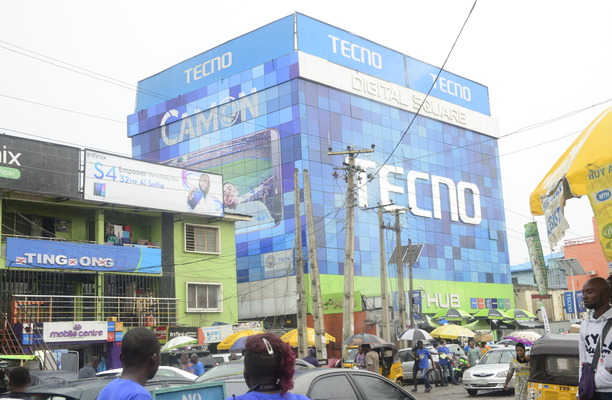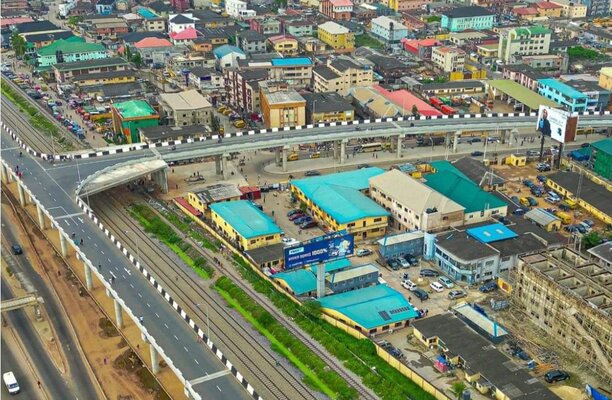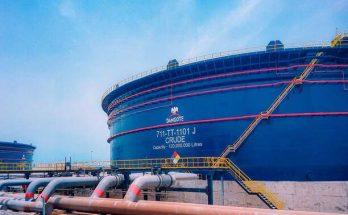By Bababunmi Agbebi
Edited by Ezennia Uche
Ikeja, the state capital of Lagos State, has over the years emerged as one of Nigeria’s foremost business hubs, drawing companies in, nurturing retail markets, technology clusters and corporate offices. At the same time, the broader Nigerian economy is witnessing companies exiting or scaling back. This article explores why companies are locating in Ikeja, and conversely why some firms decide to leave or reduce presence. It includes examples of companies present in Ikeja and businesses departing the Nigerian market.
Why companies keep moving into Ikeja
Several factors make Ikeja attractive for businesses:
1. Strategic location & infrastructure advantage
- Ikeja benefits from its proximity to key logistics nodes. for example, the Murtala Muhammed International Airport (MMIA) in Ikeja, which gives firms easier access for air freight, business travel and connectivity.
- The road network and commercial real-estate availability (especially compared to some of the more expensive islands of Lagos) are cited as advantages.
- Business clusters already exist: the neighborhoods of Allen Avenue, Oregun, Alausa have a concentration of banks, corporate offices, retail and government offices, creating ecosystem benefits. Check here
2. Market size and business diversity
- Lagos is Nigeria’s most populous state and a commercial engine; locating in Ikeja gives firms access to a large consumer base, high foot traffic and wide business-to-business opportunities.
- The presence of diverse industries in Ikeja. Manufacturing, ICT, finance, power distribution means that companies can benefit from proximity to suppliers, service providers and clients.
3. Company examples anchored in Ikeja
- OPay (fintech) is headquartered in Ikeja.
- PalmPay is also headquartered in Ikeja.
- Insight Publicis (advertising/communications) is based in Ikeja.
- Mikano International Limited (power-generation, construction) has its headquarters in Ogba, Ikeja.
These examples illustrate the variety of firms choosing Ikeja as a base: fintech, creative services, industrial, etc.

Why some companies have left (or scaled back) even as Ikeja remains strong
While Ikeja has many strengths, there are broader structural issues in Nigeria (some location‐specific) that cause companies to leave or reduce presence. Even those in Ikeja must navigate these.
1. Infrastructure & operational cost burdens
- Despite being better than many areas, Ikeja still suffers from the broader Nigerian challenges: unreliable power, high generator / alternative energy costs, congested transport, high rent and logistics costs.
- For smaller firms, the high cost of prime commercial space in Ikeja is becoming prohibitive.
2. Policy and regulatory uncertainty
- Multiple government levies and local authority costs (especially in busy commercial zones) add hidden costs.
3. Relocation decisions due to local constraints
- Some retail markets / zones in Ikeja (notably Computer Village) are facing relocation by the state government to decongest and reorganize. For instance, the Lagos State Government announced plans to relocate Computer Village from Ikeja to Katangowa market in Abule Egba. NEW COMPUTER VILLAGE
This type of forced relocation can disrupt businesses, and firms may consider other locations or reduce footprint.
Balancing the narrative: Ikeja’s unique role amid a challenging environment
- For a firm looking to locate in Ikeja, the benefits include market access, visibility, clustering with other businesses and access to transport/logistics nodes. The risks include higher rents/operational cost, infrastructure deficits and policy uncertainty.
Conclusion
Ikeja holds a prominent place in Lagos’ business map: its strategic location, concentration of business activity and access to markets make it a natural choice for many companies. At the same time, the broader business environment in Nigeria poses significant challenges which sometimes lead to companies leaving or reducing their presence. For Ikeja to continue being a business net-centre, stakeholders must keep reinforcing its infrastructural, regulatory and commercial advantages while mitigating the systemic risks that threaten business operations in Nigeria.








